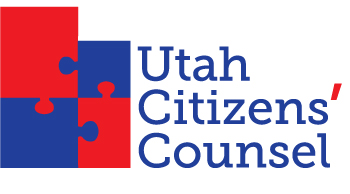UCC is happy to report that, at least for now, a proposed constitutional amendment to limit voters’ rights to pass statewide legislation by initiative failed to receive approval by the 2024 Legislature. House Joint Resolution 14 (HJR 14) and its implementing statute (HB 284) would have required 60% voter approval for any statewide initiative that included a new tax or tax rate increase. Such a super majority disrespected the people’s right to pass legislation by majority vote, as provided in Utah’s Constitution. It was intended to substitute rights of a minority of voters for rights of voter majorities by allowing 40% plus one of the voters to, in effect, overrule 60% minus one of the voters.
UCC testified against these measures in the House Government Operations Committee and joined in a coalition press conference against the measures. Others in the coalition included Better Boundaries, the League of Women Voters, and Let Utah Vote. Despite significant opposition from these groups and others, the House Committee and the full House supported the legislation. The measures also passed the Senate Revenue and Taxation Committee, but the full Senate declined to vote on the measures, citing concern that there would be too many proposed constitutional amendments on the 2024 ballot, which would be confusing to voters.
If, as expected, these measures are reintroduced next year, lack of clarity and inconsistencies in the wording between the language of the proposed constitutional amendment and the implementing statute would be reason alone to oppose them. The issue is not dead, just postponed, so UCC will maintain its strong opposition.
The 2024 Legislature also slipped a substantive provision into a supposed election clean-up bill, Senate Bill (SB) 37, which could have serious implications if HJR 14 is revived in a future legislative session. It removes a requirement that voter information about proposed constitutional amendments contain an “impartial analysis” by the nonpartisan Office of Legislative Research and General Counsel that “fairly describes” the language of the amendment. Instead, the Senate President and House Speaker will prepare the analysis, without the need for impartiality or fair description, which obviously could result in an explanation that tips the scale toward passage of the amendment or any future amendment.
On a more helpful note, House Bill 79 passed both Houses and has become law. It provides the same mechanism for individuals with disabilities that is found in other Utah voting laws so that individuals who are unable to write their signature and other required information on an initiative or referendum petition are able to use an alternative method of having their information verified. The measure also eliminated the requirement for signature gatherers to certify that signers “understood” the petition they signed, recognizing that signature gatherers are not in a position to ascertain a signer’s understanding, i.e., read the minds of petition signers.
